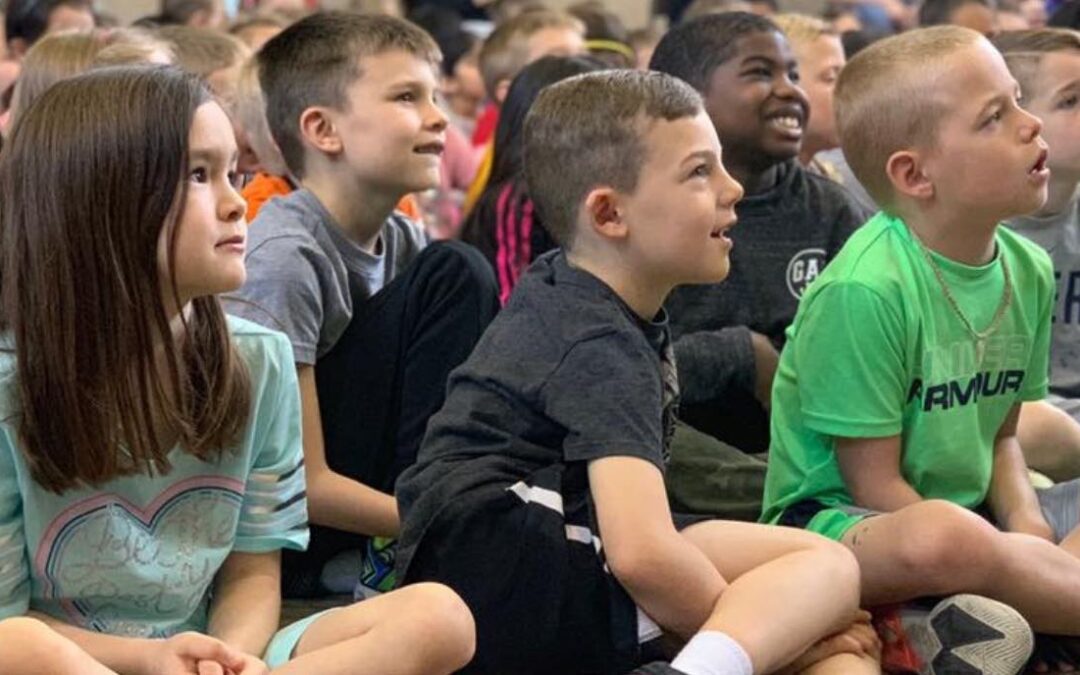While Children’s Mental Health Awareness Week has passed, Mental Health Awareness Month as a whole has not. The Joseph Maley Foundation believes that it is important to continue to share resources on how to begin the conversation of mental health with children, because we believe, like many others, that education is a vital step to ending the stigma around mental illness. For today’s blog post we bring to you an interview of one of our HOPE Program speakers, Dr. Jessica Mayer. Dr. Mayer is a completing her residency training in pediatrics, adult psychiatry, and child and adolescent psychiatry, and is a valuable asset to HOPE. Continue reading to learn more about Dr. Mayer, as well as her thoughts on mental health education for children.
Could you speak a bit about your background? How did you get into your current field, and why is it such a passion for you?
I first became passionate about medicine when I was in college, through working at a free health clinic for the underserved populations in Arkansas (where I was raised). Through this work I first began to see how intertwined physical, mental, and emotional health really are, each influencing the others. I completed my medical education locally and consistently found myself drawn to working with pediatric populations. It also became clear that the well-being of the caregivers is ultimately crucial to fostering a child’s own healthy development. Ultimately, I moved to Indianapolis in 2016 to pursue my residency training in pediatrics, adult psychiatry, child & adolescent psychiatry- blending all my interests and passions into focus for my career.
You have spoken for the Joseph Maley Foundation’s HOPE Program. How was this experience?
I have loved having the opportunity to speak with both children and their parents through the HOPE Program! I have consistently been impressed by the children, teachers, parents, caregivers, and facilitators who have helped make these presentations possible. The children have consistently and eagerly engaged in the presentations, from asking insightful questions about how sleep, food, friendships, play, family, and school can affect how they feel, to excitedly practicing coping techniques like holding their favorite superhero poses! I have equally been impressed by the community of caregivers who attend the parent night presentations, bringing their thoughtful questions, providing a safe environment to share concerns, and building an environment that models promoting mental well-being. I have felt honored to be a part of the HOPE program and am so thankful for the Joseph Maley Foundation for providing these programs for our children and their caregivers.
How were you first introduced to the HOPE program?
I was first introduced to the HOPE Program though my residency training program, as previous resident physicians have been involved over the years. I first spoke with a group of students in November 2017 with Dr. Soe and have loved having the opportunity to meet parents, caregivers, teachers, and children alike since that time.
Why do you think mental health education is so important for young children?
No one escapes childhood without some normal feelings of distress. Compound this with the reality that our children are forced to tackle new challenges that are culturally inescapable and different from the struggles of our own childhood (largely due to increases in technologies/social connectedness, thinking of social media as just one example). It is crucial for our young children to be educated about mental health so that they learn to identify their feelings and develop the language needed to be able to communicate their joy or distress with trusted adults. In part, this is done by parents and educators discussing emotions with children, modeling coping techniques, and reaching out for help when struggling. Having a culture that is accepting of discussions of the normal day-to-day struggles, will also provide an environment where students experiencing mental illness or bullying can also non-judgmentally seek help.
What recommendations do you have for families to help initiate conversations about mental health with their children?
It is never too late to start talking about mental health with your children! The best recommendation we have for school aged children is to create a consistent opportunity to welcome in your child to allow them a safe space to share their thoughts, feelings, joys, and concerns with you. Often this can be done by having a consistent meal each day with your child without having electronics around (to reduce distractions and promote conversation), and deliberately checking in on how they are doing. This is also an opportunity for you to model how to talk about your feelings and how you deal or cope with them in a healthy way. Finally, if you have a concern or a hunch that your child is struggling, always ask them directly, offer them unconditional support, let them know that there is hope for feeling better, they are not alone, and provide reassurance that reaching out for professional support is always an option.
As you know, the statistics regarding mental health in Indiana are pretty dire. What do you think we can do to help turn this around?
Our best tool is education. Our children are quite literally the future and it is through our modeling that they learn ways to deal with difficult emotions and situations that they will face throughout their lives. By providing education we spark an awareness of the struggles our children are facing, provide pathways for them to successfully navigate their struggles, and foster larger cultural shifts in our communities where discussing mental health and illness are commonplace and seeking competent support is acceptable. It is only through knowing the challenges we face, that we can find solutions. I am appreciative of JMF for providing the HOPE Program towards achieving this goal for so many of our school communities in Indianapolis.
